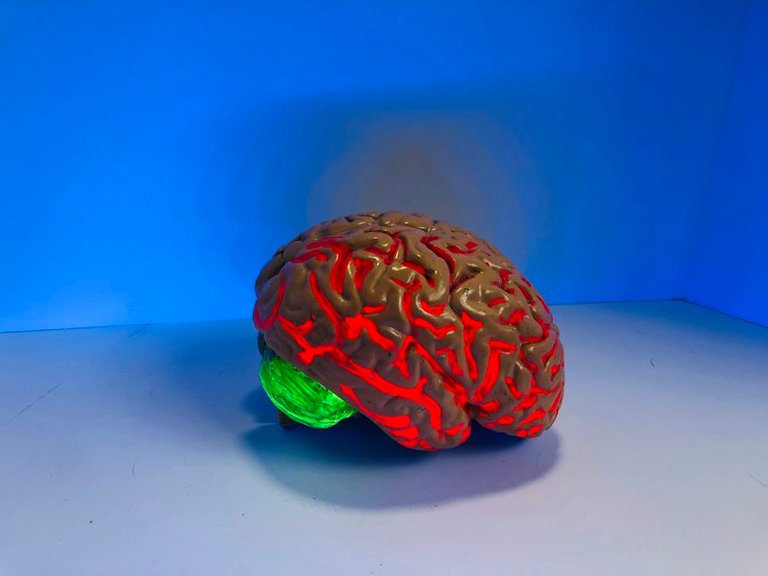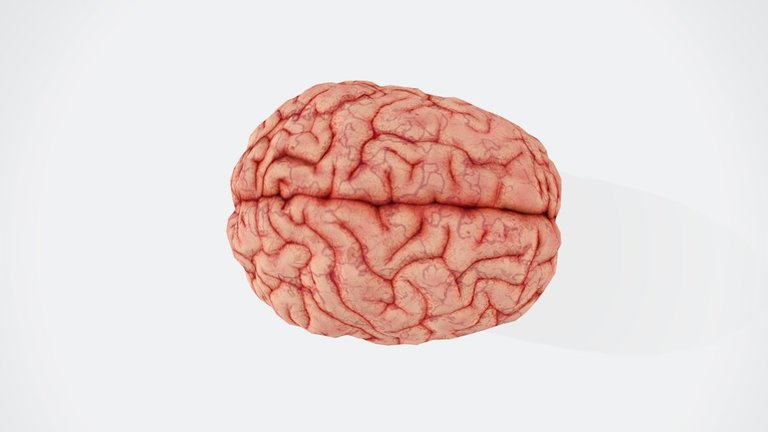Still On Brain Lesions: Aphasia
We saw in previous blog-isode on how brain lesions(damaged tissue) can lead to serious disruptions of the most distinctively human of all human activities. One such disorder is call aphasias (a language disorder). In right-handers, they are almost always produced by lesions in certain cortical areas of the left hemisphere.

In a type of aphasia called expressive aphasia, the main issue for the person is having trouble speaking. It's more like a language apraxia, (as we have discussed in previous blog-isode). In severe situations, someone with this problem might find it very hard to say or write any words. With less extreme ones, a few words or phrases survive. These can be everyday phrases like "hello" or strong emotional reactions like "damn it!"
In milder situations, only some of the usual words used in speaking might be lost, but talking becomes choppy and difficult as finding and saying each word needs extra effort. It ends up sounding like a series of short, disconnected messages: "Here... head... operation... here... speech... none... talking... what... illness." Something like a radio with a bad signal.
https://youtube.com/shorts/G-XP-zDzw-0?si=HCNklSauvX0ffAKF
It's quite similar to the apraxias we talked about earlier. There's no issue with the muscles used for speech; the person can move their lips and tongue just fine. The problem lies in organizing and planning these movements into a coordinated sequence. They struggle to combine individual movements to form words or put words together to make a clear sentence.
This kind of Expressive aphasias are generally produced by lesions(damages) in a region of the left frontal lobe called Broca's area. This is an association area that borders on the part of the motor projection zone and controls the speech muscles, like the tongue, lips, jaw, larynx , and others and plays an important role in orchestrating their separate functions.
Many researchers of this condition have pointed out that people with expressive aphasia, often called Broca's aphasia, struggle specifically with making function words. These include words like "and," "but," "in," "on," "is," "was," and endings like "ed" in words like "walked." These function words indicate how words relate in a sentence. When these words are missing, individuals with Broca's aphasia speak in a slow, choppy way, like saying, "Today... doctor... ten o'clock... operation..."
In expressive aphasia, people usually get what they hear but struggle to respond to it. In another type of this condition called "receptive aphasia", the patients have difficulty understanding when spoken to, even though they often try to answer. It's more like a language agnosia(loss of ability to identify). In some cases, they can recognize words but have a pretty hard time understanding them. They can repeat the sound patterns but don't really understand their meaning. This means their trouble involves both understanding and speaking. For instance, when asked to point to a spoon, one person said, "Spoon, poon, yes," and then pointed to the wrong thing. When told to touch her nose, she replied, "Stuch, tux news, nose," and didn't do anything.
Unlike people with expressive aphasia, those with receptive aphasia talk a lot and quickly, but even though they use many words, they don't say much. The sentences they make are mostly grammatically correct, but they are full of filler words that don't give much information. For example, they might say something like, "I was over the other one, and then after they had been in the department, I was in this one."
In comparing this situation to expressive aphasia, those with receptive aphasia don't have a problem with function words. Instead, what's missing are the important content words, the nouns and verbs that carry most of the meaning.
What about those who communicate with sign language 🤷
There is a small minority of people who are deaf and who communicate through sign language. Researchers have found that sign languages, like American Sign Language (ASL), are just as complicated as spoken languages.
What happens to deaf persons whose only language is ASL and who suffer a stroke in the left hemisphere ?
The main discovery is that deaf individuals in this situation face a challenge similar to aphasia. While they can move their hands and fingers, they struggle to effectively create signs. Some lesions affect making specific signed words, while others hinder putting these signs together to form correct signed sentences. It seems that the left-hemisphere lesions causing aphasia impact a mental function related to human language, which isn't limited to the ear-mouth channel. This function involves cerebral machinery that works similarly whether language is expressed through the tongue and mouth or through hands and fingers.
Fascinating isn't it?
Bus Stops Here for today:
Thanks for joining me in today's blog-isode. I hope you enjoyed it as much as I did. I'd be happy to hear your thoughts on what we've discussed today or on my blogs. I always enjoy creating these blogs and want to make sure you enjoy reading them. Until tomorrow, stay safe!

References and links:
https://www.britannica.com/science/Broca-area
https://www.ncbi.nlm.nih.gov/books/NBK493156/
https://my.clevelandclinic.org/health/symptoms/17839-brain-lesions
https://medlineplus.gov/ency/article/007472.htm
Congratulations @serenecounsel! You have completed the following achievement on the Hive blockchain And have been rewarded with New badge(s)
Your next target is to reach 3250 upvotes.
Your next target is to reach 100 replies.
You can view your badges on your board and compare yourself to others in the Ranking
If you no longer want to receive notifications, reply to this comment with the word
STOPBrain is so complex … damages there can cause some different problems but still much to understand
`
Want to Know more about Hivepakistan?
Ping Us On Hive Pakistan Discord server
To support HivePakistan, delegate Hive Power to hivepakistan and earn 90% curation reward :)
Here are some handy links for delegation
A delegation of 500 or more HP makes you earn Hivepakistan supporter badge.
`
Indeed! Thank you so much for reading, upvoting and leaving a comment. I'm really glad I could be of help through these blog-isode.
Thanks for your contribution to the STEMsocial community. Feel free to join us on discord to get to know the rest of us!
Please consider delegating to the @stemsocial account (85% of the curation rewards are returned).
Thanks for including @stemsocial as a beneficiary, which gives you stronger support.
Such a nice review, I was able to grab a lot
Wow, thanks so much for reading! I'm glad I could be of this help.